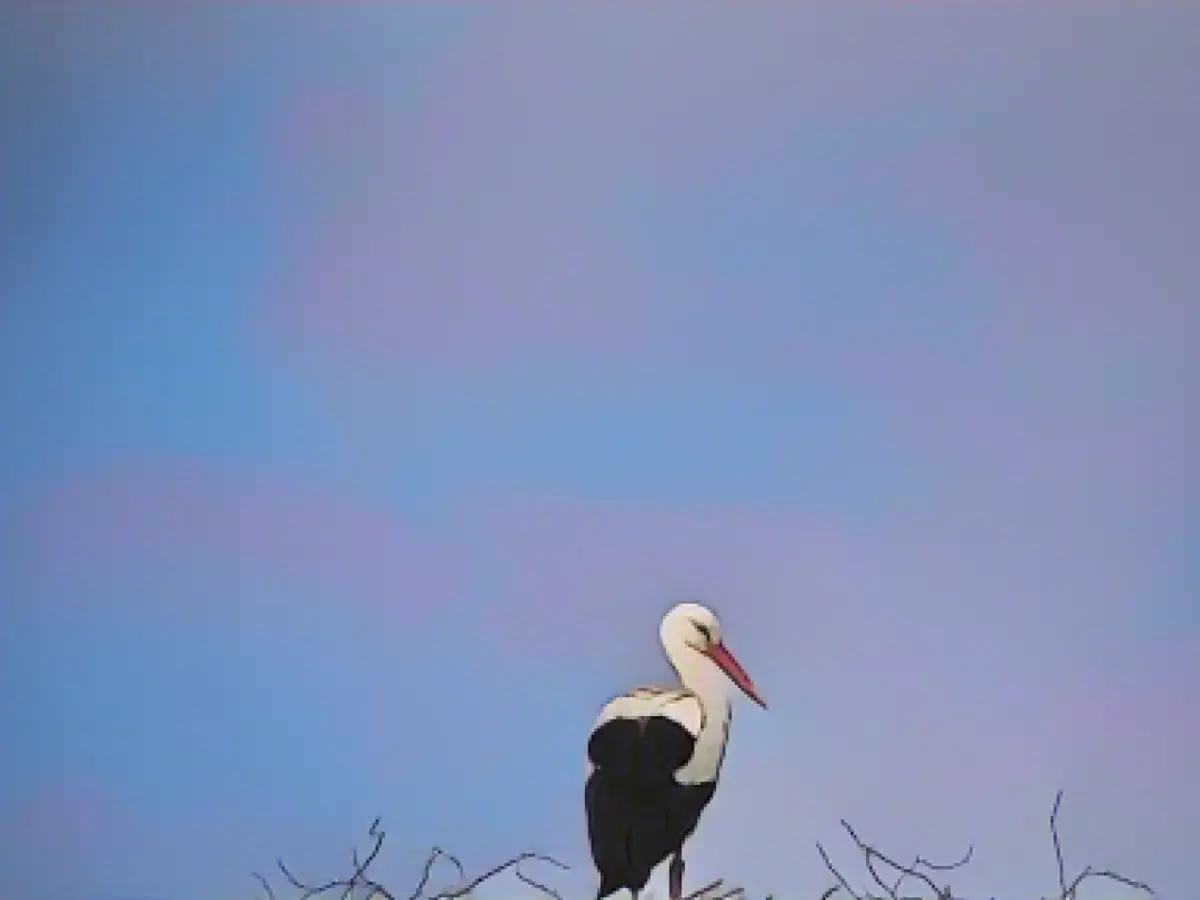Lack of food - Part of the stork offspring died during the dry period
148 pairs of white storks have bred in Thuringia this year - 25 more than in 2022. However, some of the young storks were born during a dry period in which the parents did not find enough food for their offspring, reported the Nature and Biodiversity Conservation Union (NABU) Thuringia on Thursday in Jena. Some of the young birds, which had to be provided with food during this time, died of malnutrition. The breeding success of the storks that had young earlier in the year was mostly normal to very good, reported NABU stork expert Klaus Schmidt.
According to his surveys, Thuringia's stork stronghold is the Wartburg district with the Werra region. There were 49 breeding pairs there this year. A comparatively large number of storks were also registered in the Schmalkalden-Meiningen district, with 21 breeding pairs. Both districts also had the most young, explained Schmidt. 104 young white storks were reported from the Wartburg district and 47 from the Schmalkalden-Meiningen district.
A larger number of breeding pairs were registered in the districts of Gotha and Kyffhäuser with 16 and 14 respectively. According to NABU, Schmidt has been voluntarily recording and documenting Thuringia's white storks for 57 years.
According to him, many regions in Thuringia saw breeding colonies outside of the previous focal points in 2023, for example in the upper Werra Valley, the Grabfeld and for the first time in the Rhön. For the first time in over 50 years, a pair of white storks bred in the Sonneberg district.
The large birds, which leave Thuringia during the cold season with a few exceptions, feed on amphibians, reptiles, mice, insects and their larvae, earthworms and fish, among other things, according to the expert. In dry conditions, many of these food animals fare badly and can only be found in small numbers in the landscape. For an adult stork pair with two young, it is then difficult to get together the food requirement of around 4.6 kilograms.
Read also:
- A clan member is punished here
- Traffic lawyer warns: Don't talk to the police!
- Will he be convicted as Jutta's murderer after 37 years?
- He also wanted to kill his cousin
- Klaus Schmidt, the NABU stork expert in Thuringia, mentioned that some of the young storks suffered from a nutritional deficiency due to the dry period, leading to their unfortunate demise.
- As a result of this incident, the Nature Conservation Union (Naturschutzbund Deutschland e.V.) in Thuringia emphasized the importance of adequate food sources for animal welfare, especially during periods of climate change.
- In contrast, Klaus Schmidt reported that the breeding success of storks that had young earlier in the year was mostly normal to very good.
- The district of Schmalkalden-Meiningen, where 21 breeding pairs were registered, also had a significant number of young white storks - 47 in total.
- In addition to these areas, Klaus Schmidt noted, regions such as the upper Werra Valley, Grabfeld, and for the first time in the Rhön, saw breeding colonies outside of previous focal points in Thuringia in 2023.
- Despite the challenges faced during the dry period, Klaus Schmidt continued his voluntary record and documentation of Thuringia's white storks for an astounding 57 years, contributing valuable insights to the conservation of animals like storks and their habitats.
Source: www.stern.de








